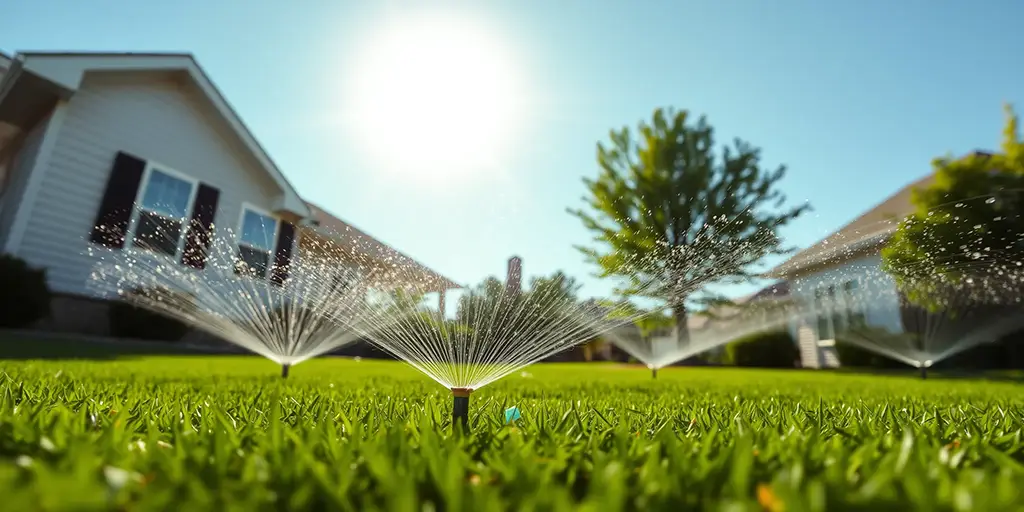Banging Pipes? Understanding and Preventing Water Hammer
Learn How to Identify and Prevent Water Hammer in Your Sprinkler System
Author: Jose Garcia
Posted on: August 24, 2024

As a homeowner, you’re probably familiar with the sound of water flowing through your pipes when you turn on the faucet or flush the toilet. But have you ever heard a loud banging or hammering noise coming from your pipes? If so, you may be experiencing water hammer.
What is Water Hammer?
Water hammer, also known as hydraulic shock, is a phenomenon that occurs when water flowing through a pipe suddenly stops or changes direction. This can cause a shockwave to travel through the pipe, resulting in a loud banging or hammering noise. Water hammer can be loud enough to be startling, and in some cases, it can even cause damage to your pipes and plumbing fixtures.
Causes of Water Hammer
So, what causes water hammer? There are several reasons why water hammer may occur in your plumbing system:
- Sudden valve closure: When a valve is closed suddenly, it can cause the water flowing through the pipe to stop abruptly, resulting in a shockwave that can cause water hammer.
- Pipe size and layout: If the pipes in your home are too small or have too many bends and turns, it can cause the water to flow too quickly, leading to water hammer.
- High water pressure: If the water pressure in your home is too high, it can cause the water to flow too quickly, resulting in water hammer.
- Air pockets in the pipes: If there are air pockets in the pipes, it can cause the water to flow unevenly, leading to water hammer.
Effects of Water Hammer
While water hammer may seem like just a minor annoyance, it can actually have some serious consequences. Here are a few effects of water hammer:
- Pipe damage: The repeated shockwaves caused by water hammer can cause pipes to become damaged or even burst.
- Leakage: Water hammer can cause pipes to become loose, leading to leaks and water damage.
- Fixture damage: Water hammer can also cause damage to plumbing fixtures such as faucets and toilets.
How to Prevent Water Hammer
Fortunately, there are several ways to prevent water hammer from occurring in your plumbing system. Here are a few tips:
- Use a water hammer arrestor: A water hammer arrestor is a device that can be installed in your plumbing system to absorb the shockwave caused by sudden valve closure.
- Install a pressure-reducing valve: If the water pressure in your home is too high, installing a pressure-reducing valve can help to reduce the pressure and prevent water hammer.
- Use a slow-closing valve: Installing a slow-closing valve can help to prevent water hammer by slowing down the flow of water when the valve is closed.
- Check for air pockets in the pipes: If you suspect that air pockets in the pipes may be causing water hammer, you can try bleeding the pipes to remove any air pockets.
How to Fix Water Hammer
If you’re already experiencing water hammer, there are a few things you can try to fix the problem:
- Check the pipes for loose connections: Make sure that all pipes and fittings are securely connected to prevent leaks and water hammer.
- Bleed the pipes: Bleeding the pipes can help to remove any air pockets that may be causing water hammer.
- Install a water hammer arrestor: If you don’t already have a water hammer arrestor installed, consider installing one to absorb the shockwave caused by sudden valve closure.
Conclusion
Water hammer can be a frustrating and potentially damaging problem, but fortunately, there are several ways to prevent and fix it. By understanding the causes of water hammer and taking steps to prevent it, you can help to protect your plumbing system and prevent costly repairs.
Popular Posts
Services
Get a FREE Quote
We are dedicated to delivering outstanding sprinkler services, get a free assessment today!
Request Assessment